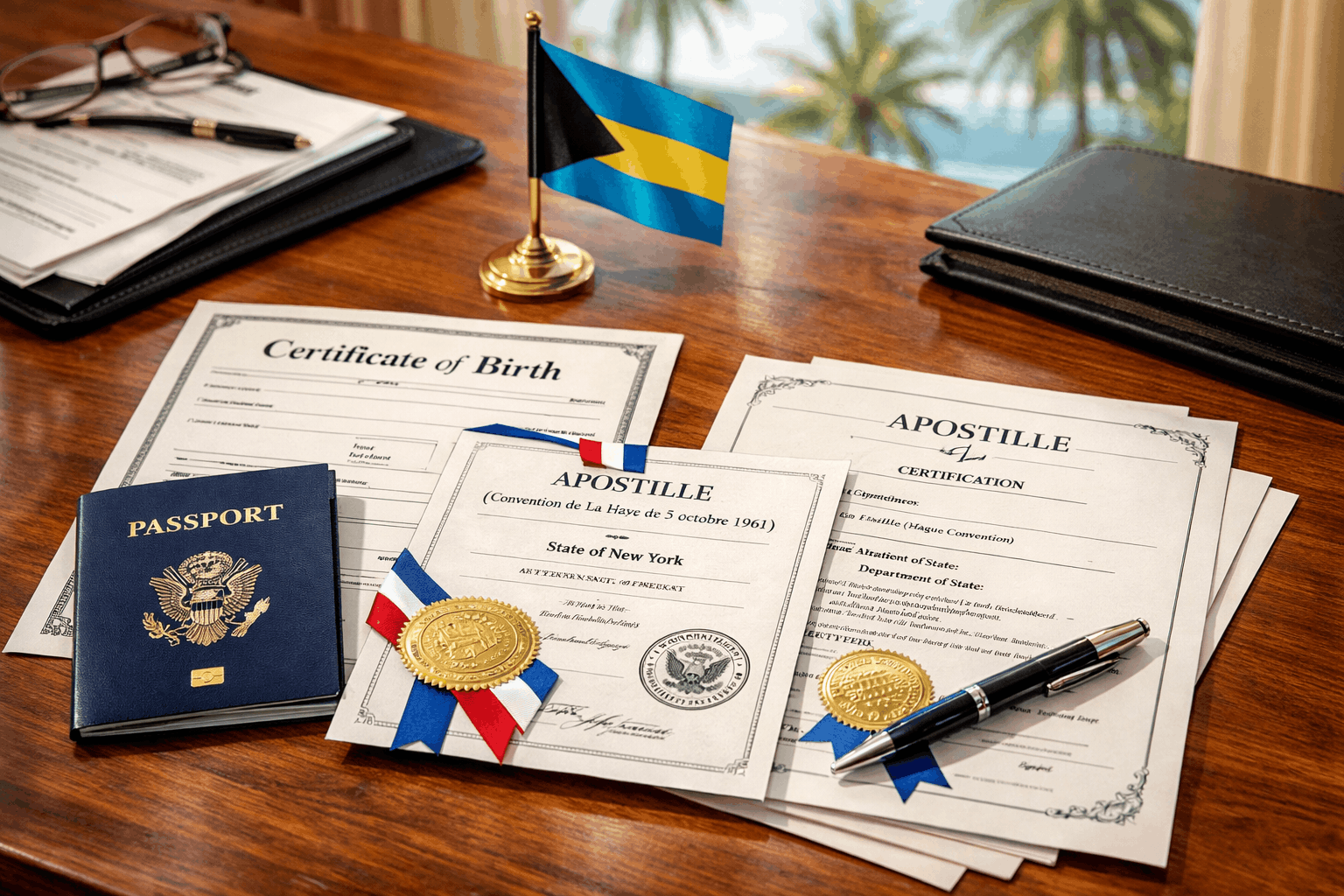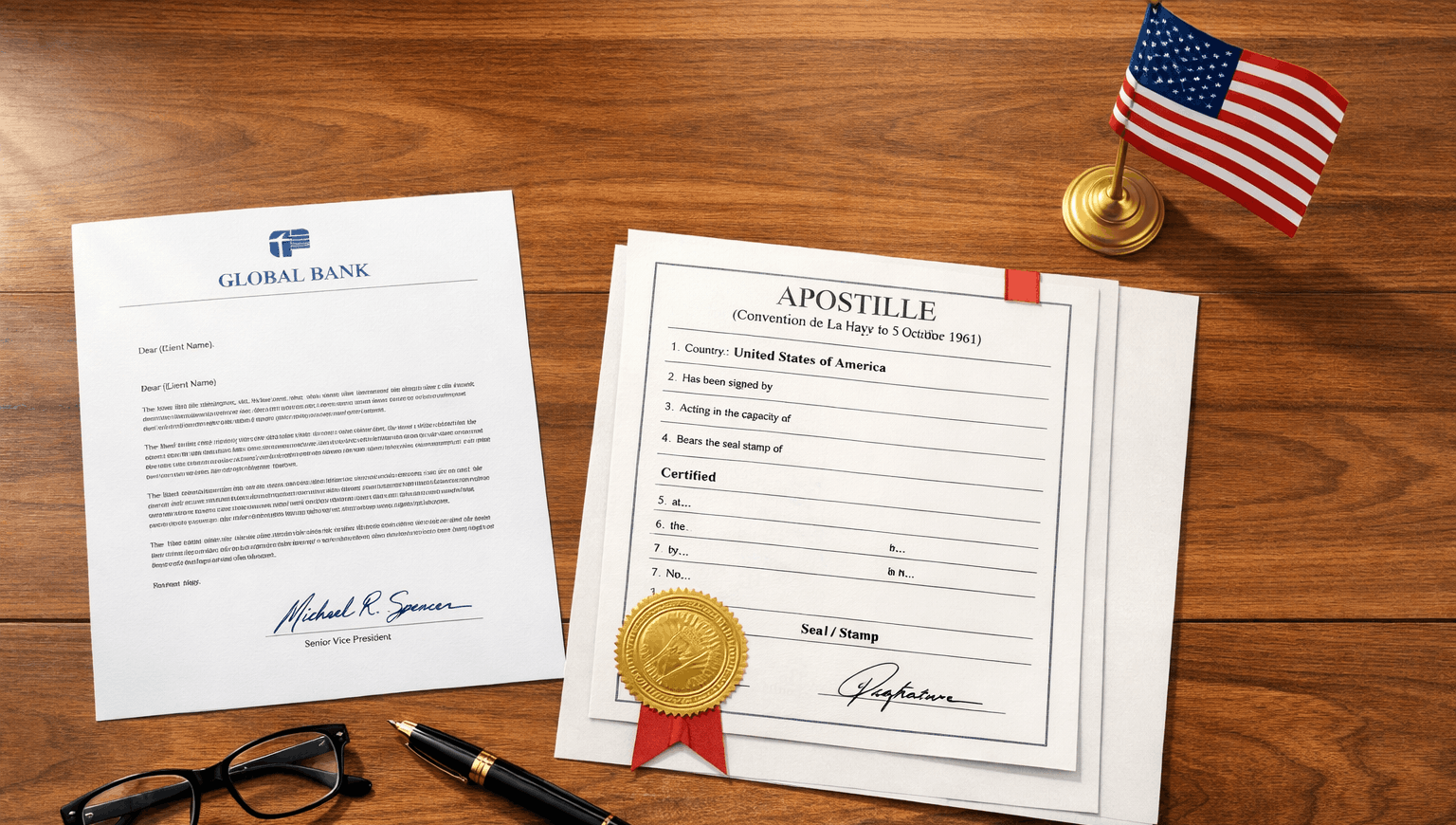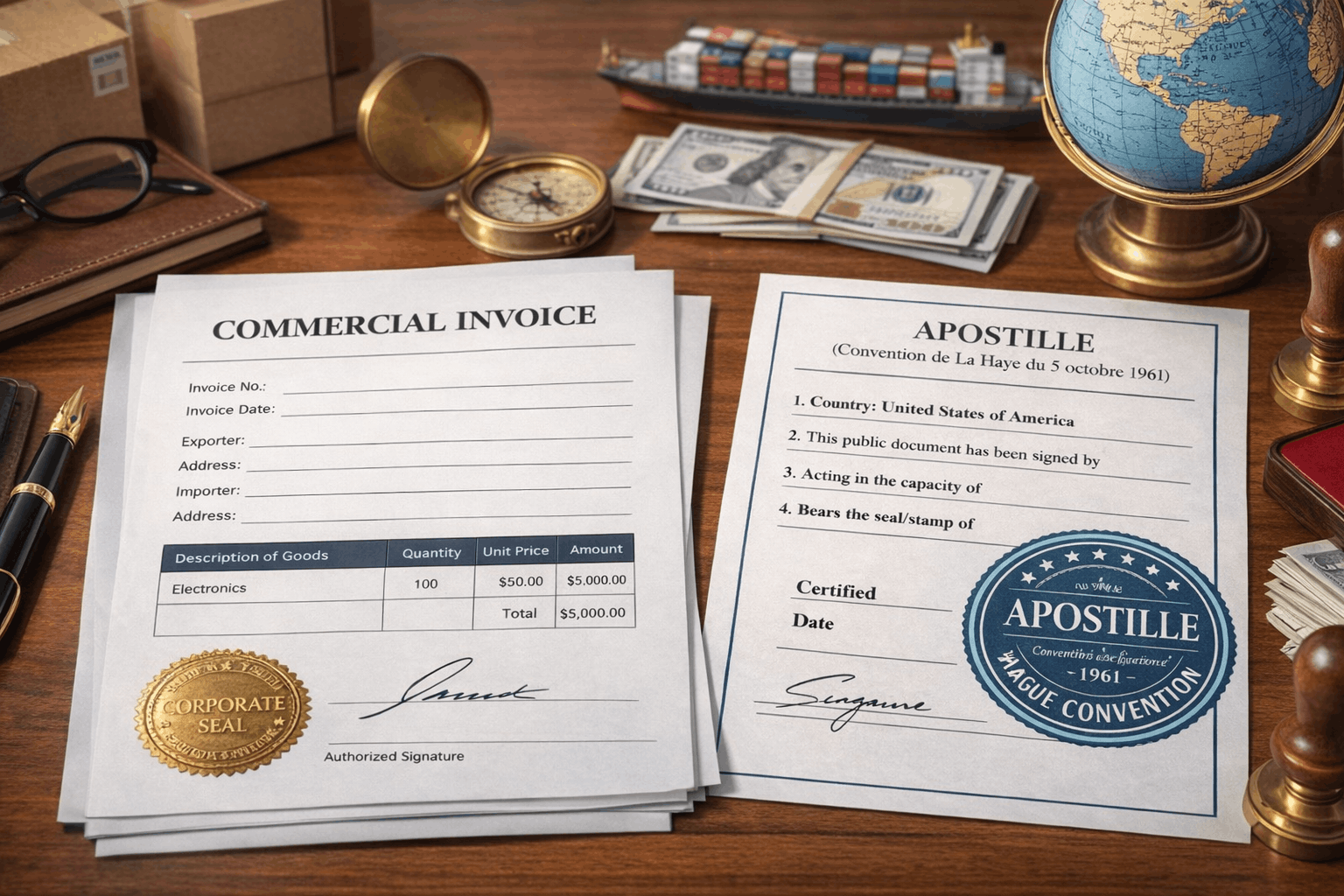
What Is a Criminal Background Check and When Do You Need an Apostille?
When applying for work, study, or residency in another country, you will often be asked to prove that you do not have a criminal record. A criminal background check provides this proof. However, having the document is not always enough. Many countries also require it to be authenticated so it can be officially recognized abroad. This is where an apostille criminal background check comes into play.
Understanding how background checks work, when an apostille is required, and how to handle the process will save you time and prevent delays. This article breaks down these essentials, explains common situations, and provides practical guidance on completing the process.
Understanding Criminal Background Checks
Before looking at when an apostille is needed, it helps to understand what a criminal background check is and the different forms it can take.
What Exactly Is a Criminal Background Check?
A criminal background check is an official record that shows whether an individual has been arrested, convicted, or cleared of crimes. It is issued by an authorized body, such as the FBI, a state police department, or a local law enforcement agency. In many cases, it is used to demonstrate that a person has no disqualifying history when applying for visas, employment, or legal processes abroad.
It’s important to note that this document does not guarantee that you will be approved for a visa or offered a job. Instead, it serves as evidence that your criminal history has been reviewed and verified by the proper authorities.
Types of Criminal Record Checks
Not all criminal record checks are the same. The document you need will vary based on the rules of the country or institution. The three most common forms are:
- Federal level: The FBI Identity History Summary, often called an FBI background check apostille. This is the most widely requested document for international use. It compiles information collected from fingerprint submissions nationwide.
- State level: Each state’s police or public safety department provides this type of document. Some countries accept these documents in place of federal reports, but they must be processed through state background check apostille authorities.
- Local level: A clearance letter from a local police department confirming whether the applicant has a criminal record within that jurisdiction. These are sometimes used for travel or short-term permits. They usually require notarization before they can go through FBI and local background check apostille procedures.
To make sure you order the right report, you need to understand the differences between them. Submitting the wrong one can cause delays if the foreign authority rejects it.
When Apostilles Are Needed for Background Checks
Some background checks are valid only within the country where they were issued. To make them legally recognized abroad, many situations require an apostille. This section explains what an apostille confirms, the scenarios where it is needed, and how it compares to embassy legalization.
What an Apostille Confirms
An apostille is an international certificate attached to your criminal background check that verifies the document is genuine. It does not confirm the information in the background check, only that the document’s signature, seal, or stamp is real.
This certification is provided under the Hague Apostille Convention of 1961. Member countries of the Convention accept an apostille as valid proof, so no additional embassy or consular legalization is needed.
Situations Requiring a Criminal Background Check Apostille
There are several common situations where a criminal background check apostille is required:
- Residency visas and immigration abroad: Many countries require an apostilled criminal record check when applying for long-term residency or citizenship. This is especially common in Europe, South America, and parts of Asia.
- Teaching or employment opportunities overseas: Schools, NGOs, and companies abroad often ask foreign hires to provide a criminal background check apostille before they can begin work. This is especially important for positions involving children, healthcare, or financial responsibility.
- Adoption and family reunification cases: Adoption agencies and immigration authorities typically require a federal background check apostille to ensure the applicant has no disqualifying history.
- Foreign universities: Students applying to study abroad may be asked to present an apostilled criminal record as part of the admission or visa process.
These examples highlight why planning ahead is so important. If your background check doesn’t have an apostille, it may be rejected, causing delays or even stopping your application.
Apostille vs. Embassy Legalization
Although an apostille is widely recognized, it is valid only in countries that are members of the Hague Convention. If the destination country is not a member, the criminal background check will need to go through the embassy or consular legalization instead.
Embassy legalization is more complex. It often involves multiple steps, such as notarization, state or federal certification, and final approval by the foreign embassy in the United States. Because of this, it can take longer and cost more than obtaining an apostille.
It’s important for applicants to verify that their destination country belongs to the Hague Convention before proceeding. This helps them stay on the right track and prevent unnecessary delays. Choosing the right procedure — apostille criminal background check versus embassy legalization — can make the difference between a smooth experience and a stalled application.
How to Apostille a Criminal Background Check
Once you have your criminal background check in hand, the next step is to make sure it is prepared and submitted correctly for an apostille. This part walks through each stage of the process, from requesting the right document to handling timelines and translations.
Requesting the Right Background Check
The first step is to make sure you request the correct type of criminal background check. Submitting the wrong document could cause rejection or force you to restart the process.
- Federal level: If the foreign authority specifies an FBI report, you will need the FBI Identity History Summary. You must get this directly from the FBI or through an authorized channeler. Once issued, it must be submitted to the U.S. Department of State in Washington, D.C., for apostille certification.
- State level: If the requirement is limited to a specific state, you must request a background check from that state’s police department or department of justice. These documents are processed for a state background check apostille by the Secretary of State in the issuing state..
- Local level: Some countries may accept a local clearance letter from a city or county police department. These documents generally need to be notarized before they can go through FBI and local background check apostille procedures.
When in doubt, confirm with the requesting authority which version of the criminal background check is acceptable.
Preparing the Document
Before sending a criminal background check for an apostille, it needs to be properly prepared. This may include ensuring it is an original, recent version, and in some cases, notarized.
For example, FBI reports are typically accepted in both printed and digital PDF formats, but state and local documents may require notarization. Submitting a photocopy or an outdated report is one of the most common reasons for rejection when applying for an FBI background check apostille.
Submitting to the Correct Apostille Authority
Where you send your request depends on the type of document.
- FBI background checks must be submitted to the U.S. Department of State in Washington, D.C., for FBI background check apostille processing. Sending them to a state-level office can cause delays or even rejection.
- State background checks must be submitted to the Secretary of State in the state that issued the document. Every state has its own procedures, so it’s important to follow the correct apostille process for state background checks.
- Local police clearances are usually considered part of the FBI and local background check apostille process. These typically require notarization first, then submission to the Secretary of State in the same jurisdiction.
Submitting to the wrong office is a mistake that can cost you weeks. Always verify the correct authority before mailing or delivering your documents for an apostille.
Processing & Timelines
The time required can vary based on the issuing office, demand, and how the documents are submitted.
- At the state level, standard processing usually takes 5 to 15 business days.
- The U.S. Department of State typically requires several weeks for federal background check apostille processing, although delays are common.
- Expedited services, offered by some states and private providers, can reduce processing to a few business days.
It is wise to factor in mailing time both ways. Choosing tracked or courier services helps avoid lost documents and gives you more control over delivery when applying for an apostille criminal background check.
Translation Requirements
Some countries require documents to be translated into their official language after they have been apostilled. In such cases, you must use a certified translator who can provide a translation that meets the foreign authority’s requirements.
If translation is needed, check whether it must be done in the United States or in the destination country. Submitting a translation that does not meet the receiving authority’s requirements can lead to rejection, even if the apostilled criminal record was issued correctly.
Tips and Common Pitfalls to Avoid
Even with the right documents, small errors can delay the apostille process. This section points out the most common mistakes and explains how to avoid them.
Frequent Mistakes
A few errors consistently cause problems for applicants. By avoiding these mistakes, you can save time and prevent frustration:
- Submitting a photocopy instead of the original or certified version of the criminal background check.
- Using a report that is too old. Some countries require background checks issued within the last 3 to 6 months.
- Forgetting notarization on local or state documents that require it.
- Sending documents to the wrong apostille authority.
Even a small oversight can set your application back by weeks.
Plan for Processing Times
Background checks and apostilles take time. If you’re applying for a visa, work permit, or school program abroad, request your documents early. Relying on last-minute submissions often leads to unnecessary stress and the risk of missing important deadlines.
Creating a timeline for each step of the process helps you stay organized. For example, allow time for ordering the background check, receiving it, mailing it for apostille, waiting for processing, and arranging for translation if needed.
Why Many Choose Apostille Services
Many individuals choose to hire professional apostille services to handle the process on their behalf. These providers are familiar with state and federal requirements, know how to avoid common mistakes, and can often offer faster turnaround through established relationships with authorities.
While there is an additional fee, professional services reduce the risk of rejection and delays. They also provide peace of mind by handling the paperwork, tracking, and communication with the issuing offices, especially useful for handling a criminal background check apostille smoothly.
From Background Check to International Approval
A criminal background check is one of the most common documents required for international use, whether for work, study, adoption, or immigration. Simply having the document is not always sufficient. For it to be accepted abroad, it often needs to be authenticated with an apostille or legalized by a foreign embassy if the country is not a Hague member.
By ordering the correct background check, preparing it properly, and submitting it to the right authority, you can complete the process smoothly. Planning ahead and avoiding common mistakes will save time, while professional services offer an extra layer of convenience and reliability.
FAQ
Can any criminal background check be apostilled?
No. Only official documents issued by recognized authorities, such as the FBI, state police, or local departments, are eligible. Photocopies or unofficial records cannot be apostilled.
How long does the apostille process take?
Processing times vary. State-level apostilles usually take 5 to 15 business days, while federal apostilles from the U.S. Department of State may take several weeks. Expedited services can shorten the wait.
What if the destination country is not in the Hague Convention?
In this situation, you’ll need embassy or consular legalization rather than an apostille. The process involves multiple steps and often takes longer.
Do apostilles expire?
An apostille does not have an expiration date. However, many foreign authorities require that the underlying background check be recent, often issued within the last 3 to 6 months.
Do I need to translate my background check after it has been apostilled?
Some countries ask for translations, which usually must be done by a certified translator. Be sure to review the requirements of the country you’re applying to before submission.





